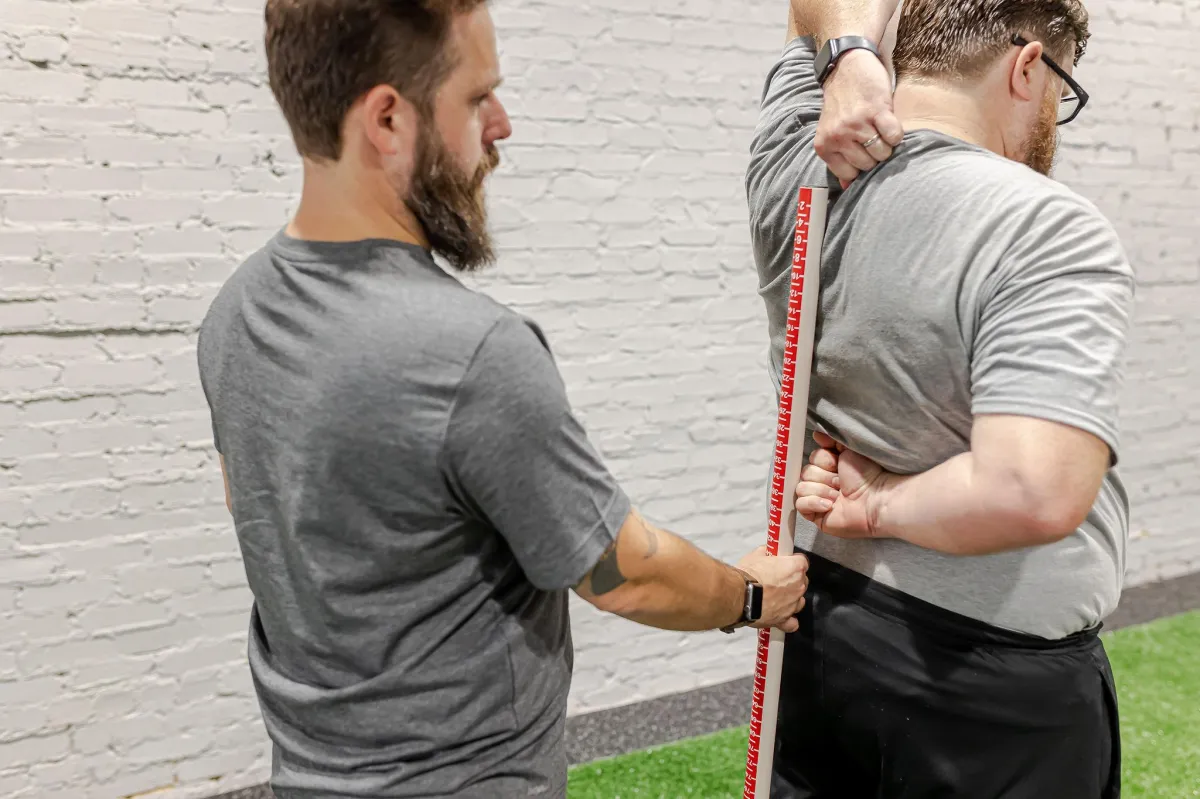
The Importance of Functional Movement Screening in Your Fitness Routine
Are you looking to maximize your workout efficiency and prevent injuries? Functional movement screening (FMS) is a powerful tool that can help you achieve these goals. FMS assesses your movement patterns, identifies limitations, and helps you address them, ensuring you get the most out of your fitness routine. In this guide, we'll delve into what FMS is, why it matters, and how it can benefit your training regimen.
What is the Functional Movement Screen?
Are you looking to maximize your workout efficiency and prevent injuries? Functional movement screening (FMS) is a powerful tool that can help you achieve these goals. FMS assesses your movement patterns, identifies limitations, and helps you address them, ensuring you get the most out of your fitness routine. In this guide, we'll delve into what FMS is, why it matters, and how it can benefit your training regimen.
The Basics of FMS
Functional movement screening is a systematic approach to evaluating your movement patterns. It helps identify weaknesses, imbalances, and limitations that could lead to injuries or impede your performance.
Key components of FMS
FMS consists of seven fundamental movement tests that assess mobility, stability, and motor control. These tests include:
Deep Squat: Assesses lower body mobility and stability.
Hurdle Step: Evaluates stride mechanics and hip stability.
Inline Lunge: Tests lower body symmetry and balance.
Shoulder Mobility: Measures upper body flexibility and range of motion.
Active Straight-Leg Raise: Assesses hamstring flexibility and core stability.
Trunk Stability Push-Up: Evaluates core strength and control.
Rotary Stability: Tests multi-plane trunk stability.
Benefits of Functional Movement Screening
Injury Prevention
By identifying and addressing movement limitations, FMS helps reduce the risk of injuries, allowing you to train more safely and effectively.
Improved Performance
Correcting movement patterns can enhance your overall performance, making your workouts more efficient and effective.
Personalized Training
FMS provides valuable insights that enable you to tailor your training program to your specific needs, optimizing your results.
Integrating FMS into your fitness routine
Regular Assessments
Perform an FMS assessment at the beginning of your training program and periodically throughout to monitor progress and adjust your workouts.
Frequent Asked Questions
Q: How often should I perform an FMS assessment?
A: It's recommended to perform an FMS assessment every 4-6 weeks or when starting a new training phase.
Q: Can I do FMS on my own, or do I need a professional?
A: While you can perform FMS on your own with proper instructions, working with a certified professional can provide more accurate results and tailored guidance.
Ready to optimize your fitness routine with functional movement screening? Schedule a discovery call to learn more and set up you FMS assessment today and take the first step towards a safer and more effective workout.
Conclusion
Functional movement screening is a valuable tool for anyone looking to enhance their fitness routine. By identifying and addressing movement limitations, FMS helps prevent injuries, improve performance, and personalize your training program. Incorporate FMS into your fitness journey and unlock your full potential.





